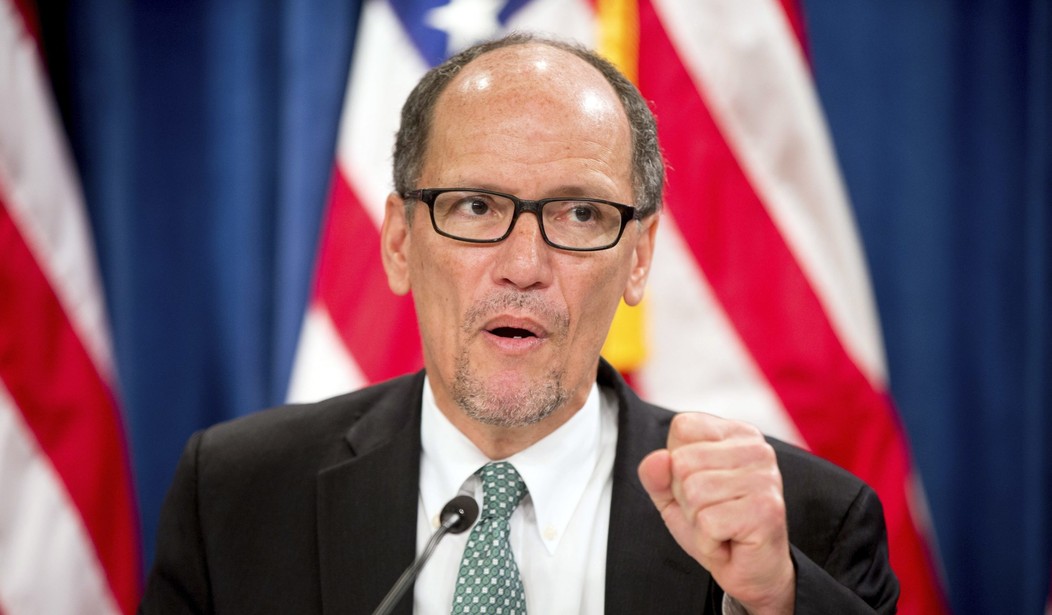Last week, the new chairman of the Democratic National Committee (DNC) said abortion is “not negotiable.” In doing so, he arguably alienated a large cross-section of the Democratic base — not just Americans, but blacks, Latinos, young people, and women who identify as Democrats.
“Every Democrat, like every American, should support a woman’s right to make her own choices about her body and her health,” DNC Chair Tom Perez said in a statement on Friday. “That is not negotiable and should not change city by city or state by state.”
This represented a flip-flop for the DNC chairman, who last week endorsed Heath Mello, a Democrat running for mayor in Omaha, Neb. NARAL Pro-Choice America attacked Mello as “anti-choice” because she supported a measure requiring abortion providers to offer an ultrasound to expectant mothers.
Perez’s declaration that every Democrat must support unrestricted access to abortion stands in key contrast to the position of most Americans — and even a large percentage of the Democratic base.
“Whether they identify with pro-life and pro-choice as labels, that question tends to be very polarizing, but when we ask people in more detail to specify what their position really is, and give them a choice of six different options on restrictions, we find this really strong consensus of people who really don’t want abortion to be commonplace beyond three months,” Barbara Carvalho, director of the Marist Poll, told PJ Media.
By opposing all restrictions on abortion, Perez is alienating this broad consensus of Americans. The numbers are staggering: 54 percent of Americans who describe themselves as “pro-choice” favor restricting abortion to at least the first three months of pregnancy; 58 percent of Democrats also favor those restrictions, along with 77 percent of women, 69 percent of millennials, 79 percent of Latinos, 79 percent of African-Americans, and 71 percent of whites.
According to a Knights of Columbus (KoC)/Marist poll in January, these large majorities prefer limiting abortion to the first three months of pregnancy, or to cases involving rape or incest or to save the life of the mother, or just to save a mother, or in no cases at all.
“If we push away all the rhetoric, we can find a consensus among Americans beyond party and ideology,” Carvalho said. Of Perez’s abortion statement, she argued “it resonates with many Democrats but it doesn’t broaden the appeal to more moderate Democrats, to independents, and certainly not to Republicans.”
But even the base is far from united on this issue. Of the 58 percent of Democrats who support restricting abortion, one in five voted for or support Donald Trump, Carvalho told PJ Media. “That’s a significant proportion of just Democrats. We’re talking about people who identify as Democrats.”
She also emphasized the large majorities of key groups that make up the Democratic base — minorities, women, young people — that favor restrictions on abortion.
“When we talk to people and you ask them to identify with a label of pro-life or pro-choice, many struggle,” Carvalho explained. “That’s why we developed a more expansive question, because we found that people would start explaining their position to us.”
Like Mello, a large proportion of Democrats support public policies on abortion that cut beyond Perez’s declaration that a “woman’s right to choose” is “non negotiable.” Carvalho lamented that the issue “tends to get exasperated by this hyper polarization rather than focused on what people actually think.”
Perez is merely cementing the polarization, and not in a good way for the Democratic Party. Whatever NARAL tells him, Americans support limits on abortion, and many Democrats have already shown a willingness to abandon the party over this issue. By taking this stance, Perez could be leading his party to another disaster like 2016.









Join the conversation as a VIP Member